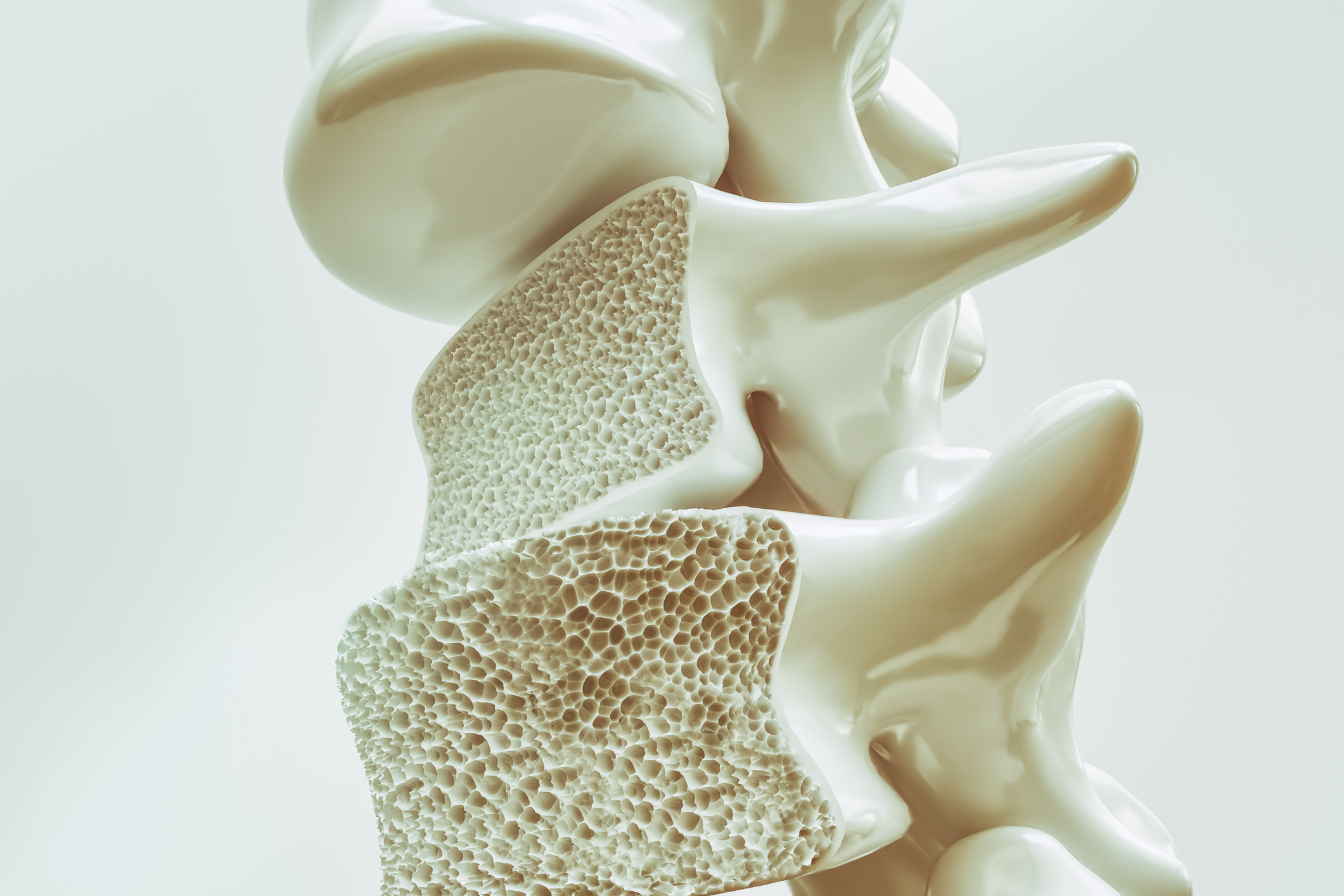
Osteopenia is a condition characterized by low bone density, which can lead to an increased risk of fractures and osteoporosis. However, with the right diet and lifestyle choices, it is possible to improve bone health and prevent further bone loss. In this article, we will explore the best foods for osteopenia and bone density, as well as the role of diet in promoting strong bones.
Understanding Osteopenia and Its Impact on Bone Density
Osteopenia is a condition that occurs when the bone mineral density (BMD) is lower than normal but not low enough to be classified as osteoporosis. It is often considered a precursor to osteoporosis, a more severe condition characterized by extremely low BMD and a higher risk of fractures.
Having osteopenia means that your bones are weaker and more prone to fractures than they should be. While it may not cause noticeable symptoms initially, it is important to take action to prevent further loss of bone density.
Defining Osteopenia: A Brief Overview
Osteopenia is diagnosed through a bone density test called a DEXA scan. This test measures the density of your bones and compares it to the average peak bone density of a young adult of the same gender. The results are expressed as a T-score, with values between -1 and -2.5 indicating osteopenia.
It is crucial to know your bone density status, as it can help guide your treatment and dietary choices. The earlier you detect osteopenia, the better the chances of halting or reversing bone loss.
The Connection Between Osteopenia and Bone Density
Osteopenia is directly related to bone density, which refers to the amount of calcium and other minerals in your bones. When bone density decreases, bones become weaker and more susceptible to fractures.
Factors that contribute to low bone density include genetics, age, hormonal changes (such as menopause in women), and poor nutrition. While some risk factors cannot be changed, such as genetics and age, diet is a modifiable factor that can significantly impact bone health.
One of the key nutrients for maintaining optimal bone density is calcium. Calcium is essential for bone formation and strength. It is found in a variety of foods, including dairy products, leafy greens, and fortified products. Ensuring an adequate intake of calcium can help support bone health and reduce the risk of osteopenia.
In addition to calcium, vitamin D is also crucial for bone health. Vitamin D helps the body absorb calcium from the diet and plays a vital role in bone mineralization. Exposure to sunlight is an excellent source of vitamin D, but it can also be obtained through certain foods and supplements.
Regular weight-bearing exercises, such as walking, jogging, or weightlifting, can also help improve bone density. These activities stimulate the bones, making them stronger and less prone to fractures. It is important to consult with a healthcare professional before starting any exercise regimen, especially if you have osteopenia or other bone-related conditions.
By understanding the connection between osteopenia and bone density, you can take proactive steps to maintain and improve your bone health. Regular bone density screenings, a balanced diet rich in calcium and vitamin D, and regular exercise can all contribute to stronger bones and reduce the risk of fractures.
The Role of Diet in Bone Health
A balanced diet plays a vital role in maintaining proper bone health. Consuming the right nutrients can help increase bone density, reduce the risk of fractures, and promote overall skeletal strength.
While calcium is often associated with bone health, it is essential to remember that other nutrients, such as vitamin D, magnesium, phosphorus, and vitamin K, work together to support strong bones. Hence, it is crucial to focus on a well-rounded diet that provides a variety of nutrients.
Nutritional Needs for Healthy Bones
Calcium is a key mineral required for building and maintaining strong bones. Good dietary sources of calcium include dairy products like milk, cheese, and yogurt, as well as fortified plant-based milk alternatives like almond milk or soy milk.
Vitamin D is essential for proper calcium absorption and utilization. It is naturally synthesized in the skin when exposed to sunlight. Food sources of vitamin D include fatty fish like salmon, mackerel, and sardines, as well as fortified foods like orange juice and breakfast cereals.
Magnesium and phosphorus also play crucial roles in bone health. Magnesium can be found in foods such as green leafy vegetables, whole grains, nuts, and seeds. Phosphorus is abundant in lean meats, seafood, dairy products, and legumes.
Vitamin K is involved in the synthesis of proteins that regulate bone mineralization. Green leafy vegetables, such as kale, spinach, and broccoli, are excellent sources of vitamin K.
How Poor Diet Contributes to Osteopenia
Poor nutrition, especially a diet lacking in essential nutrients, can contribute to the development and progression of osteopenia. Inadequate intake of calcium, vitamin D, magnesium, and vitamin K can hinder bone mineralization and weaken bone structure.
Additionally, diets high in sodium, caffeine, and alcohol have been linked to a greater risk of osteopenia and osteoporosis. These substances can lead to increased calcium excretion and interfere with the body’s ability to absorb and utilize essential nutrients for bone health.
Top Foods for Boosting Bone Density
Now that we understand the importance of nutrition for bone health, let’s explore some of the best foods to include in your diet to boost bone density.
Dairy Products and Their Benefits
Dairy products are well-known for their high calcium content, making them excellent choices for enhancing bone density. Milk, cheese, and yogurt are rich sources of calcium, as well as other essential nutrients like protein and vitamin D.
When choosing dairy products, opt for low-fat or non-fat varieties to minimize saturated fat intake. If you are lactose intolerant or follow a plant-based diet, consider consuming fortified plant-based milk alternatives, such as almond milk or soy milk.
The Importance of Leafy Greens
Leafy green vegetables are not only packed with vitamins and minerals but also offer several benefits for bone health. They are excellent sources of calcium, magnesium, and vitamin K, all of which play critical roles in bone formation and maintenance.
Incorporate greens like kale, spinach, collard greens, and Swiss chard into your diet. These versatile vegetables can be enjoyed in salads, stir-fries, smoothies, or even as a side dish.
Fish and Omega-3 Fatty Acids
Fish, particularly fatty fish like salmon, mackerel, and sardines, are not only delicious but also excellent sources of omega-3 fatty acids. Omega-3 fatty acids have been shown to support bone health by reducing inflammation and improving calcium absorption. They also provide vitamin D.
Try to include fish in your diet at least twice a week to reap the benefits of omega-3s. If you are vegetarian or vegan, consider incorporating plant-based sources of omega-3s, such as flaxseeds, chia seeds, and walnuts.
Foods to Avoid for Optimal Bone Health
While it is essential to focus on consuming bone-healthy foods, it is equally important to limit certain foods that can negatively impact bone density.
The Dangers of Excessive Sodium
A high-sodium diet can contribute to the loss of calcium through urine, which can lead to weakened bones over time. Processed and packaged foods, such as fast food, chips, and frozen meals, are often high in sodium.
Opt for fresh, whole foods and limit your consumption of processed foods to help maintain optimal bone health.
The Impact of High-Sugar Foods on Bone Density
Consuming excessive amounts of sugar can interfere with the body’s ability to absorb calcium and other essential nutrients for bone health. Sugary beverages, candies, desserts, and processed snacks are often high in added sugars.
Instead, satisfy your sweet cravings with natural sugars found in fruits or opt for healthier alternatives like dark chocolate.
Incorporating Bone-Healthy Foods into Your Diet
Now that you have a better understanding of the best foods for osteopenia and bone density, let’s discuss how you can incorporate these foods into your daily diet.
Creating a Balanced Meal Plan
Start by planning your meals around the key nutrients needed for bone health. Include a variety of calcium-rich foods like dairy products, leafy greens, and fortified plant-based alternatives.
Incorporate omega-3 fatty acids by including fatty fish, flaxseeds, or chia seeds in your meals. Don’t forget to add sources of magnesium, phosphorus, and vitamin K, such as green vegetables, nuts, and lean meats.
Consider consulting with a registered dietitian who specializes in bone health for personalized guidance and meal planning.
Tips for Making Dietary Changes Easier
Making dietary changes can sometimes be challenging, but with a few tips and tricks, it can become a seamless process.
Start by gradually incorporating bone-healthy foods into your diet. Experiment with new recipes and flavors to make meals more enjoyable.
Find support from friends and family who can join you on your journey to better bone health. Consider joining local cooking or nutrition classes to expand your culinary skills and knowledge.
Remember, every positive change you make to your diet is a step towards improving your bone health and overall well-being.
The Best Foods for Osteopenia and Bone Density: Conclusion
By focusing on a balanced diet that includes calcium-rich foods like dairy products and leafy greens, omega-3 fatty acids from fish and plant-based sources, and other essential nutrients, you can improve your bone density and decrease the risk of osteopenia.
Additionally, limiting high-sodium and high-sugar foods can help maintain optimal bone health. Remember to consult with a healthcare professional or registered dietitian for personalized guidance and recommendations.
Taking care of your bones through proper nutrition is a proactive step towards a healthier future. Start nourishing your bones today and enjoy the lifelong benefits of strong and resilient skeletal health.
See More on Video

The Bone Density Solution By Shelly Manning The program is all about healthy food and healthy habits. As we discussed earlier, we develop osteoporosis due to low bone density. Therefore, you will have to choose the right food to help your calcium and other vitamin deficiencies.